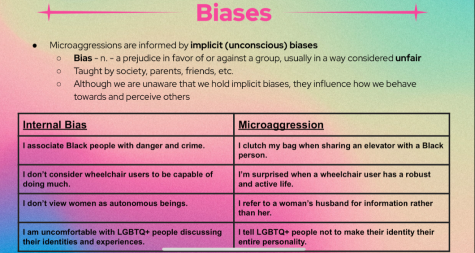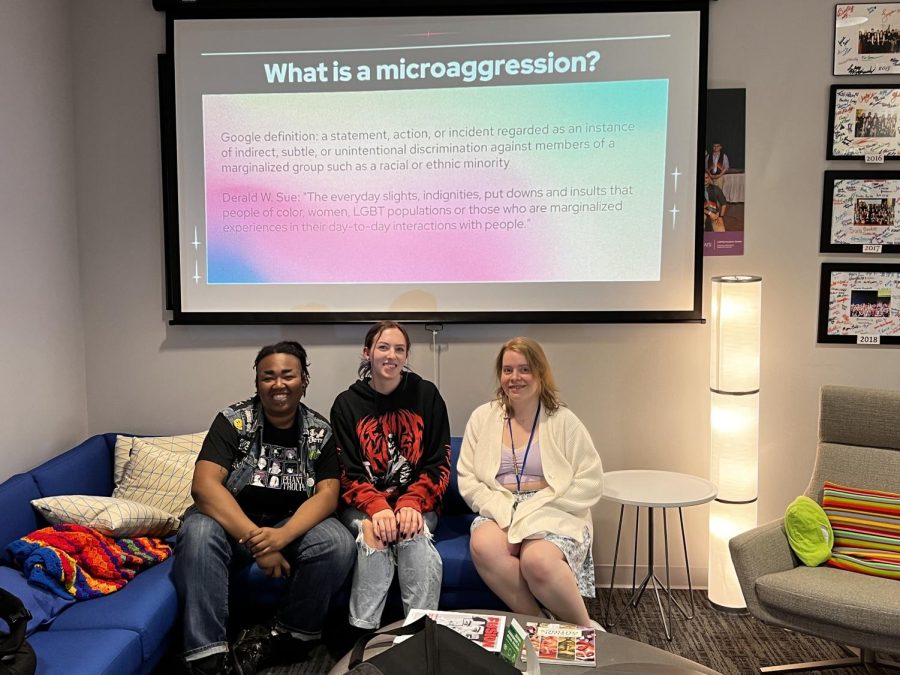LGBTQ Center workshop presents different methods to avoid microaggressions
LGBTQ center interns sit in front of their presentation on microaggressions. From right to left: Graham Callahan, Gi Jessup and Amber Quinlivan.
Kent State’s LGBTQ center explained how to handle microaggressions in a workshop on April 22.
The center opened up a dialog with students about defining microaggression, how microaggressions impact people and how to handle them as they happen.
Microaggressions are a comment or action that subtly and often unconsciously or unintentionally expresses a prejudiced attitude toward a member of a marginalized group, according to Miriam-Webster.
The LGBTQ center interns who led the discussion took turns explaining that these can be implicit or unconscious biases influenced mainly by society. Implicit biases are taught by society as a whole, friends or parents, said Graham Callahan, an LGBTQ center intern and theatre tech major.

“Biases inform the way we interact with people as a whole and the way we see people,” Callahan said. “We are generally unaware that we are holding these biases, but they end up influencing how we behave and see others.”
A chart presented and explained by Callahan included the different biases based on race, sexuality, gender, ability and class and how those manifest into everyday actions.
“An internal bias someone might have could be … I associate Black people with danger and crime, this can be under the surface based on how others talk about that group of people,” Callahan said. “The microaggression that is coming from that manifests as I clutch my bag when sharing an elevator with a Black person.”
These actions or comments while not always meant with malice could severely impact how someone sees themself, as well as enforce a negative stereotype against marginalized peoples.
“These statements or actions don’t always happen on purpose but they can impact someone’s mental and physical health,” said Gi Jessup, an LGBTQ center intern and educational studies major. “Also this reinforces negative stereotypes. … Those negative stereotypes we have learned over time stay with us, we have to work hard to unlearn these.”
Using the three I’s method, inform, intent v. impact and intentional self reaction can help students know how to handle microaggressions within themselves, Callahan explained.
It may not be easy or fun to reflect on actions, but working on yourself and noticing your behavior and others’ will make you no longer tolerate it, they said.
“A good place to start is to read articles and books from marginalized people or even follow them on social media … this allows you to start these conversations,” Callahan said. “Remember that even if your intentions aren’t harmful the negative impact is real.”
Alexandra Austin is a reporter. Contact her at [email protected].



